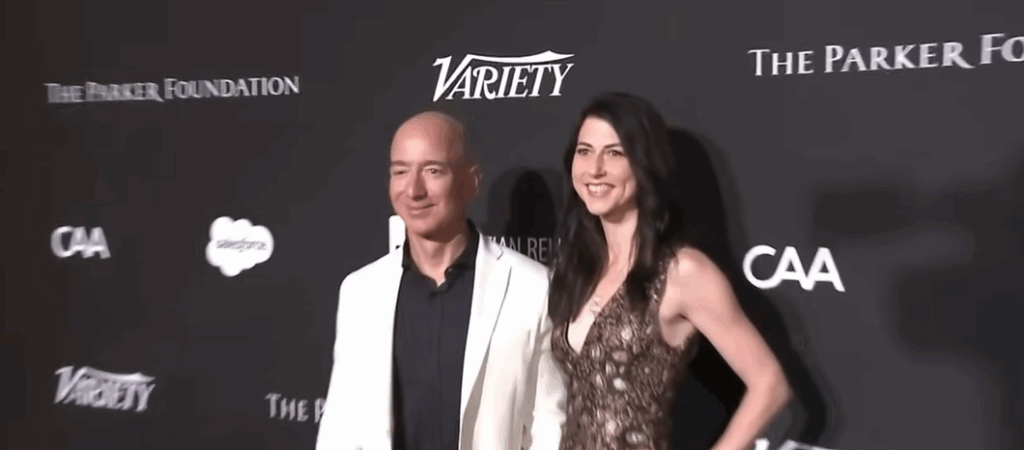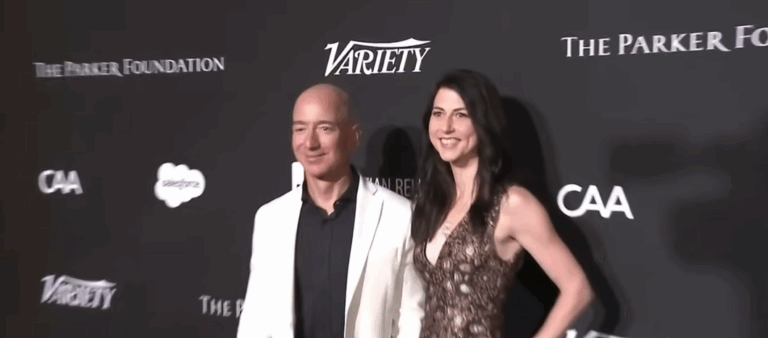By 2025, MacKenzie Scott has changed the definition of billionaire wealth, demonstrating that a fortune can be incredibly powerful when it is invested in individuals and groups that are bringing about constructive change. Even though she has donated almost $19.2 billion since her divorce from Jeff Bezos, her current net worth, which is close to $31.4 billion, is still significant. She is one of the most active philanthropists in contemporary financial history based solely on that number.
Scott left with a 4% share in Amazon stock after her divorce from the company’s founder in 2019. It was valued at about $36 billion at the time. For many, this kind of windfall could serve as the foundation for boutique investment firms or private islands. Scott’s path was very different. She committed to allocating the majority of her fortune to causes that support access, justice, and equality when she signed The Giving Pledge.
She has not only kept that promise over the last five years, but she has done so in a very creative way. Red tape and bureaucracy are avoided in her giving model. Scott provides “no-strings-attached” grants rather than demanding stringent applications or imposing conditions. Nonprofit leaders can tackle issues with flexibility, agility, and in-depth local knowledge thanks to these unrestricted gifts.
MacKenzie Scott Personal and Professional Profile
| Attribute | Details |
|---|---|
| Full Name | MacKenzie Scott Tuttle |
| Date of Birth | April 7, 1970 |
| Place of Birth | San Francisco, California, USA |
| Education | Princeton University (B.A. in English, 1992) |
| Career | Novelist, Philanthropist, Former Amazon Executive Assistant |
| Notable Work | The Testing of Luther Albright (2005), Traps (2013) |
| Former Spouse | Jeff Bezos (married 1993–2019) |
| Children | 4 |
| Major Philanthropic Acts | Donated ~$19.2 billion to 2,450+ organizations since 2019 |
| Net Worth (2025) | Approx. $31.4 billion (as per Forbes) |
| Key Holdings | Former 4% stake in Amazon.com Inc |

This strategy has shown itself to be very effective in recent years. Her $436 million gift to Habitat for Humanity in 2022, for example, allowed a nationwide housing program to expand its reach and impact in areas where affordable housing is still in short supply. Planned Parenthood received $275 million in the same year, greatly expanding its ability to offer reproductive health services across the country. The next year, $122 million was donated to Big Brothers Big Sisters of America, enabling thousands of new mentorships.
Her charitable contributions became more calculated by 2024. She started an open call through her Yield Giving platform, which gave $640 million to 361 nonprofits with a focus on the community. Based on their impact at the grassroots level, these grants, which range in size from $1 million to $2 million each, were chosen. This program helped small organizations establish themselves in a cutthroat nonprofit environment, which was especially helpful for underrepresented and underfunded causes.
Perhaps the most remarkable thing is how little Scott wants attention. For branding purposes, many billionaires flaunt their generosity, but Scott has purposefully taken a backseat. She declared in December 2021 that she would no longer reveal the amounts of her donations herself, urging recipient organizations to do so only if they so desired. Her philosophy—that the focus should be on the people doing the work, not the people funding it—is reflected in this choice.
Scott is incredibly flexible in her giving, focusing on a variety of causes such as education, LGBTQ+ rights, economic mobility, racial and gender equity, and public health. Her contributions are intended to have a lasting impact, promoting long-term transformation as opposed to temporary solutions. Scott has demonstrated a thorough awareness of systemic inequality and a persistent dedication to closing those gaps by assisting minority-led nonprofits and historically Black colleges.
Scott’s journey from executive spouse to independent philanthropist at Amazon is remarkably similar to the stories of public figures such as Melinda French Gates, who also transformed her post-divorce independence into a social mission. However, Scott is one of the most mysterious billionaires of this generation due to her decision to stay virtually completely media-shy.
Scott transformed tech capital into social capital through the use of her early Amazon shares. Her influence is felt in narratives as much as in numbers. She has shown that empathy can serve as a compass even in the face of extraordinary wealth. Her philanthropy uplifts, empowers, and protects in addition to filling financial gaps. She eliminated nearly $15 billion in burdensome bills for more than 9 million Americans when she set aside $130 million for medical debt relief. That is systemic repair, not charity.
Scott’s preference for privacy over publicity was further demonstrated by her second marriage to science teacher Dan Jewett in 2021 and their quiet divorce in 2023. Her work, however, went on without interruption. Her investment team changed its focus in 2025 to mission-aligned ventures, or companies that aim to make money by bringing about positive change. This new approach reflects a particularly progressive philanthropic model that combines sustainable economic engines with nonprofit giving.
It is anticipated that Scott’s impact on philanthropy will grow over the next several years, particularly as more donors from the next generation follow in her footsteps. Universities like Harvard and Stanford are researching her trust-based giving model, which has been shown to maximize impact while drastically lowering administrative expenses.
Scott’s style establishes a new standard for famous people and cultural icons. Her decentralized, equity-driven funding model has already begun to be incorporated by celebrities like Chance the Rapper, Leonardo DiCaprio, and Rihanna. Even sportsmen like LeBron James have started organizing their foundations to mirror Scott’s flexible and open style.
Despite being vulnerable to market swings, Scott’s wealth continues to be a symbol of tenacity. Although her portfolio is impacted by Amazon’s value, her dedication to giving has not changed. Scott voluntarily erodes her wealth in favor of long-term social benefits, in contrast to many wealthy people who protect their position.


